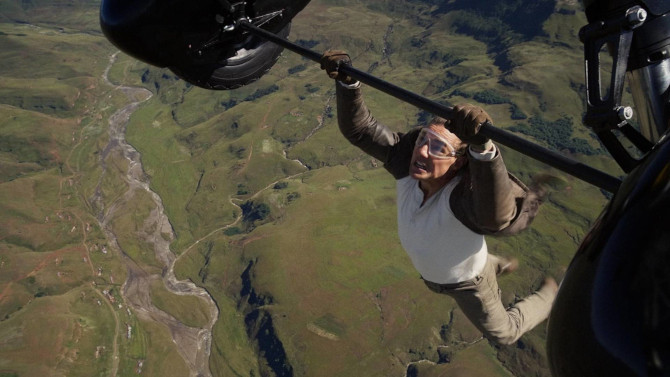
An Impossible Mission
How do you wrap up a franchise like Mission: Impossible? That is, if this even is the final installment... as they’ve made it sound (while at the same time, stars not named ‘Tom Cruise’ pipe up and suggest that might not be so). It has been twenty-nine years, with different writers and visionary directors – from twisty Brian De Palma and the action hair stylings of John Woo, to the lens flares of J.J. Abrams and animation expert Brad Bird, it was only about ten years ago that the franchise decided to opt for The Usual Suspects scribe Christopher McQuarrie for the final four. To return to that opening question once more, you could end with a Sopranos’ style cliffhanger, simply make another entertaining movie like the many before – like Everybody Loves Raymond did it with its final episode, or try to tie everything up in a neat little bow by bringing everything together as the Daniel Craig era did with James Bond. Well, it is definitely more along the lines of the latter example, with some distinct differences.
-
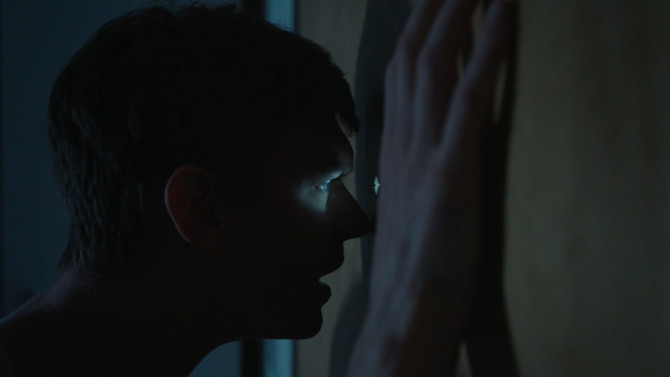
No Strings Attached
PeepholeOctober 5, 2020Having everything that is needed to build a spine tingling horror short, writer/director/cinematographer Jaron Henrie-McCrea’s just under four minute film, Peephole (2018), is one of the easiest and spookiest watches you’ll enjoy this Halloween season. Centred on a sole person, simply known as Man (Tim Lueke), and never hearing even a single word of dialogue, our character can be found asleep on his comfy couch in his small apartment. We’ve all been here before. . . late at night, our eyes becoming heavy, the television, whether exciting or boring (after all, not every infomercial has a knife that can cut through shoes), isn’t enough to keep us from dozing off.
-
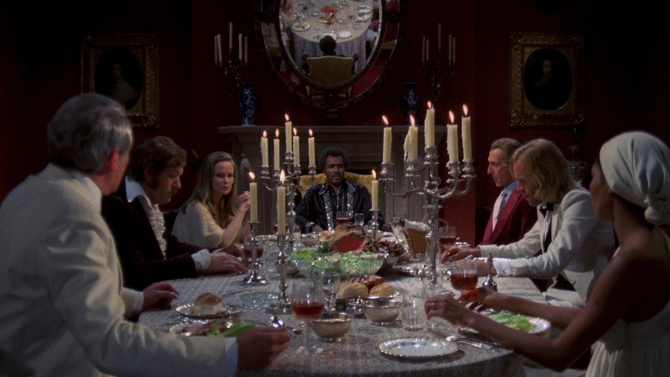
Missed the Bloody Cut: 2020 (Part 2)
October 3, 2020After the resounding success of Part 1, here is my second set of Missed the Bloody Cut reviews for 2020. . . featuring three more eccentric horror films that didn’t make the grade, but deserve to be recognized for a number of reasons anyway. Enjoy!
-
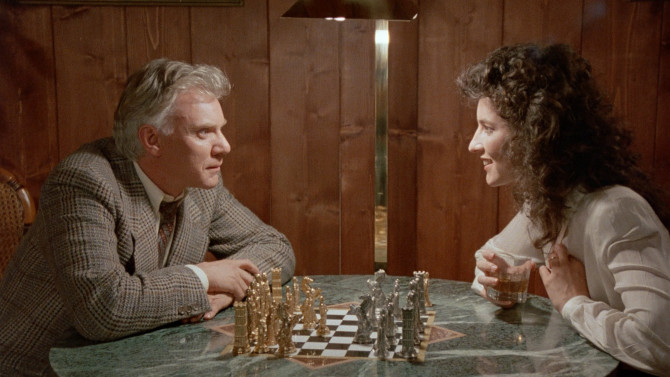
Game Point
The CallerSeptember 30, 2020With a title like The Caller (1987), one would perhaps have a preconceived notion that the Michael Sloan written (the co-creator of the television series The Equalizer), Arthur Allan Seidelman directed film would be something along the lines of the much more popular When a Stranger Calls (1979, or, if you prefer, the 2006 remake), yet, like its misleading title, nothing is what it seems. A cerebral horror tinged mystery thriller (that may just have an unexpected dose of sci-fi), Seidelman, who would seem to be aptly named, immerses the viewer with a quarter of an hour of what amounts to a chilling silent game of stalker cat versus female mouse. Taking us from an eerily quiet town to the even more isolated rural woods, our protagonist, simply known as The Girl – reminiscent of the basic names characters were given in the silent film era (Madolyn Smith Osborne), lives in a home that, in lesser hands, would likely resemble the cabin found in the Evil Dead franchise.
-
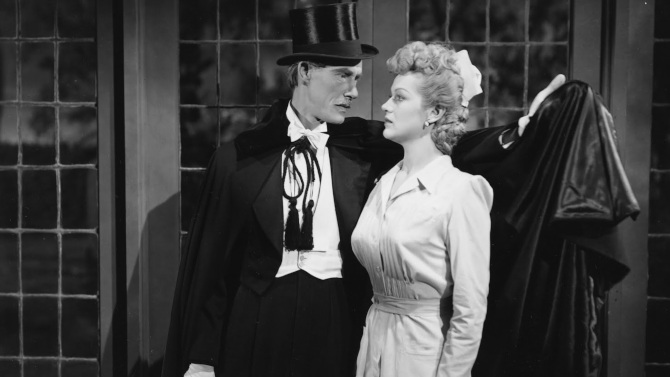
Universal House of Horrors
House of DraculaSeptember 27, 2020Celebrating its 75th anniversary this year (2020), 1945's House of Dracula, directed by Earl C. Kenton – Island of Lost Souls), is, in many ways, the last of the classic Universal monster movies. Although Abbott and Costello Meet Frankenstein and the three Creature from the Black Lagoon features would follow, this would be the final horror specific film that would centre upon their three most iconic monsters – Dracula, Frankenstein, and the Wolf Man (I apologize in advance for slighting the Invisible Man). Despite its slightly misleading title, all of the horror hijinks actually take place in and around the gothic castle of Dr. Franz Edlemann (Onslow Stevens), a surprisingly athletic older man (in reality, 43 years old) renowned for his dynamic and forward thinking form of medicine. Drawing the attention of Count Dracula (John Carradine), hiding behind the moniker of Baron Latos, and the perhaps more tortured than ever before Lawrence Talbot, a.k.a. the Wolf Man (Lon Chaney Jr. – the only actor to play the same monster every single time he appeared onscreen for Universal) – this time porting a mustache, both have sought him out – seemingly looking for a cure to their respective torturous affliction. Talk about quite the situation. . . Dracula moves into the basement, while Wolf Man takes residence in one of the upstairs bedrooms – not so sure if this a remedy for a good night’s sleep!
-
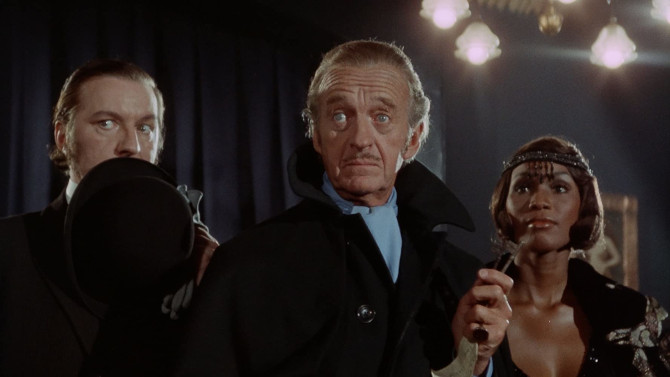
Fade to Black
Old DraculaSeptember 25, 2020If you are looking for something different in the world of vampires, odds are, no matter how outrageous your vampiric fantasy, it has already been done. Above and beyond the widely known Universal and Hammer features, we’ve seen whiny teen vampires – that’s Twilight, bloodsuckers in Alaska – 30 Days of Night, an African American creature of the night – Blacula, the dangers of a ravenous armpit that loves to feed on humans – Rabid, vampires in space – Lifeforce, mechanical bug bites that transform you into the undead – Cronos, cape wearers doing kung fu – Kung Fu from Beyond the Grave, and then we have today’s feature, 1974's Vampira (a.k.a. Old Dracula). . . its secondary title an attempted American cash-in after the release of Young Frankenstein.
-
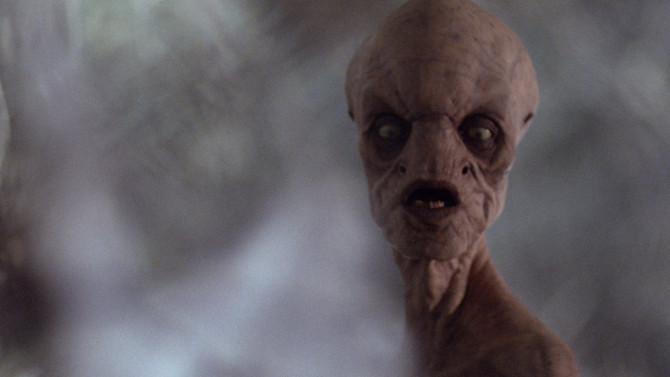
Missed the Bloody Cut: 2020 (Part 1)
September 21, 2020A tradition every October here on Filmizon.com, I’ve decided that I would highlight some of the horror movies that did not meet my strict criteria (a rating of 7.0 or higher). . . as I realized that they are still entertaining films (horror fanatics may enjoy) that do not deserve to be locked away in an attic, never to be seen again – and that they are definitely worth a watch (just maybe not several re-watches).
